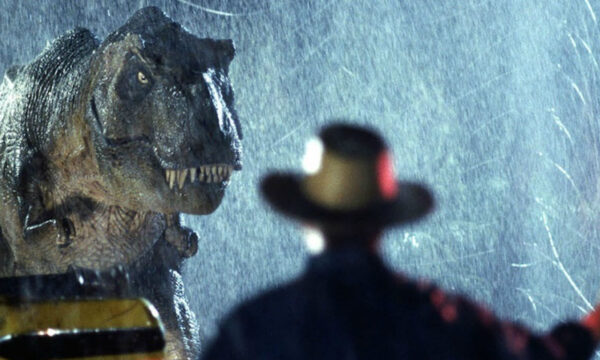Five historically favoured games adored by men across ages

Throughout history, games have evolved as pivotal anchors in society. Serving not merely as leisure pursuits, they act as essential catalysts for community bonding, fuelling competitive spirit, and reflecting cultural evolution. From spirited contests in local squares to hushed strategy sessions in private clubs, games have consistently demonstrated their societal relevance. While both men and women have found intrigue in myriad games, certain ones have distinctly resonated within the male domain. These games, cherished through the ages, offer a window into the evolving paradigms of masculinity, aspirations, and societal values. Immersion in the narratives of these games reveals more than game mechanics and strategies; it provides insights into stories of ambition, societal standards, and evocative glimpses of influential eras now consigned to history.
Chess: The Game of Kings
Chess, often hailed as the “Game of Kings,” boasts a rich tapestry of history and tradition that stretches back over a millennium. Its earliest roots trace back to 6th century India, where it emerged as “chaturanga.” As the game meandered its way through Persia, it underwent transformative shifts, gradually morphing into the version recognised globally today. Historically, the competitive landscape of chess has predominantly been shaped by male grandmasters, their names echoing in the hallowed halls of chess lore. Their dominance wasn’t merely a testament to skill but also spoke volumes about societal structures and gender norms. Beyond the precision of moves and the intricacies of strategies, chess captured the imagination of many due to its metaphoric resonance. It wasn’t just a game; it mirrored the complexities of war, the depth of strategic foresight, and became emblematic of intellectual might and tactical acumen.
Gladiatorial Combat: The Ultimate Display of Strength
Gladiatorial combat stands as one of the most visceral and awe-inspiring spectacles from the annals of ancient history, with its strongest associations to the grandeur and might of ancient Rome. This intense and often lethal contest saw mostly male participants, not merely as fighters but as emblematic figures of bravery, technical skill, and sheer physical might. The sands of the arena bore witness to battles that were more than mere sport; they were theatrical performances of life and death, where the line between victor and vanquished could shift in a heartbeat. The allure of these combats wasn’t just in the raw display of power. For many, it was the embodiment of the ultimate challenge, where a man’s strength, skill, and courage were tested to their very limits. The arena became a crucible, distilling and showcasing the essence of valour, determination, and the indomitable human spirit.
Rugby: A Brotherhood on the Field
Rugby, with its storied origins and robust traditions, has etched a prominent place in the world of sports. Born in the hallowed grounds of English public schools during the 19th century, this game quickly transcended its educational confines, finding ardent followers in corners far and wide. The global spread of rugby is a testament not only to its captivating nature but also to its ability to bridge cultures and communities. Historically, the sport has showcased a predominant male presence, both on the pitch and among its throngs of supporters. While recent years have witnessed a commendable rise in women’s rugby, the legacy remains steeped in male narratives. The allure of rugby lies not just in its palpable physical intensity but also in its underlying ethos. It champions teamwork, fosters camaraderie, and encapsulates a sense of brotherhood that has, for generations, deeply resonated with men, forging bonds stronger than mere teammates.
Go (Baduk/Weiqi): Ancient Strategy on a Board
Go, also known as Baduk or Weiqi, carries with it an aura of mystique and tradition, harking back over 2,500 years to its genesis in ancient China. Unlike other board games, Go is not merely about capturing pieces but encompasses a profound depth of strategy, echoing the grandeur of territorial conquests. The game, with its minimalist black and white stones, hides beneath its surface a complexity that has intrigued minds for millennia. Historically, the echelons of top Go players were dominated by men, reflecting not only the societal structures of the times but also the reverence accorded to master strategists. The allure of Go is multifaceted: it’s not simply about winning, but about the journey of the mind. The game beckons players to demonstrate patience, employ foresight, and, above all, outmanoeuvre the adversary. In its silent confrontations, Go becomes an intellectual dance, a cerebral challenge that many men have found irresistible.
Bocce Ball (or Boules): Precision on the Ground
Bocce Ball, also known widely as Boules, encapsulates a blend of history and precision that has resonated deeply within European culture. This seemingly simple game, where balls are rolled to be as close as possible to a smaller target ball, traces its lineage back to the vast expanse of ancient Rome. Over the centuries, it has evolved from rudimentary throws in dusty arenas to refined matches on meticulously groomed courts. The sight of men gathering in town squares or on the verdant expanses of village greens, intently focused on their throws, has been a familiar scene. Such gatherings were not just about the competition; they became social events, forums of camaraderie, and displays of deft skill. What makes Bocce stand out is its unique blend: the union of social interaction with the thrill of tactical challenge. This dual allure has, for ages, rendered it both an engaging sport and a cherished communal tradition.
The editorial unit























Facebook
Twitter
Instagram
YouTube
RSS